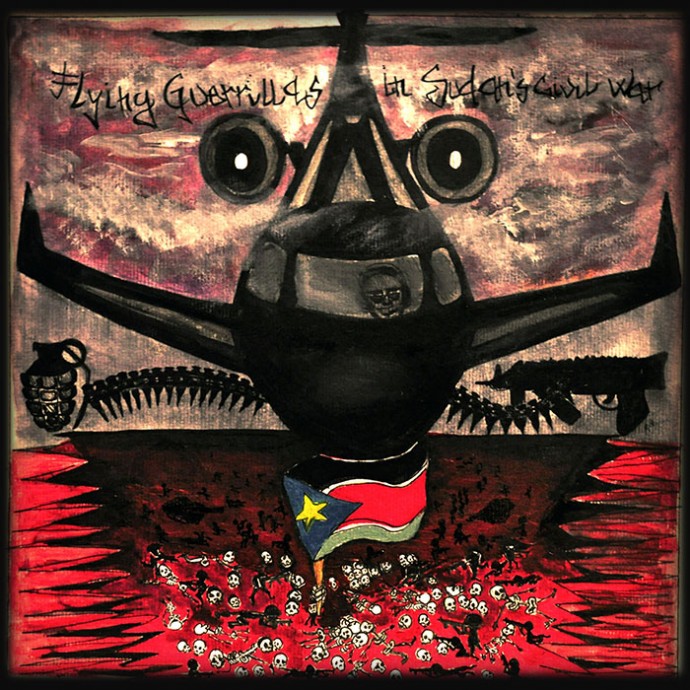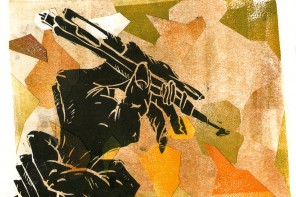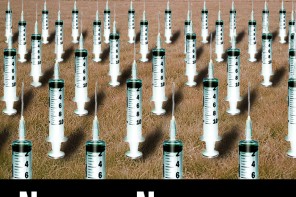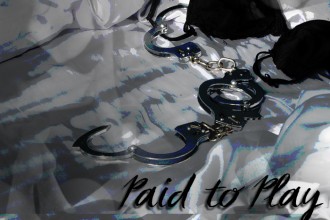In 2011, the new state of South Sudan was announced and officially recognised by nations around the world. For many, this was the brightest piece of light shed on a region that has been ravaged by brutal conflict for half a century, mostly away from the global media. Stephen, as a young pilot from Canada looking for a job in the 1990s, unexpectedly landed in the middle of the rebel factions, aid agencies, diplomats and tribal armies that continue to play out different chapters of this bloody episode of history.
I was a fighter pilot with the Canadian Air Force, but I left with the intention of becoming an airline pilot, as that seemed to offer a better quality of life. My timing couldn’t have been worse, as the recession of 1990 was just starting. For three years I attempted to get any flying job. I had the highest licence possible, so technically could have flown any airplane. I kept busy by finishing off my Bachelor of Arts, majoring in political science.
Finally I got offered a job in Africa and I jumped at it. At that point I would have accepted any flying job, anywhere. I was based in a small private camp just outside Lokichokkio, several miles from the Sudanese border in northwestern Kenya, and flew small planes for a couple of private companies. About half my flying was official charter flying for the UN. The other half was private charters, which were sometimes NGOs and journalists going to places they shouldn’t be, or guerilla leaders getting around. I usually preferred these trips and they tended to be more interesting, as much of my UN flying was “routine” and could be boring. Generally there were no real rules on charter flights, and I didn’t care who or what was on my plane, but simply saw them as weight that I could or could not handle.
The guerilla bosses and their bodyguards were always discreet, and tucked away their weapons when on the plane. Though I was familiar with weapons, I never carried a gun on me or in my plane. The people I worked with and lived with in Kenya knew I had been a fighter pilot, but I didn’t advertise the fact to anyone in Sudan. I realised it was very important to be seen as the neutral, impartial pilot who took no sides, and many times when people were upset for one reason or another I was never the target of anyone’s wrath.
Most of the time I felt pretty safe flying in Sudan, but what made Africa dangerous was its unpredictability. I am only aware of one instance when I knew I was being shot at, though I’m sure there were more. At our UN camp there was a daily briefing on the war in Sudan, so we had a pretty good idea about the situation and where there was active fighting. Generally, during the two years I flew into Sudan, no side seemed to gain the upper hand, and I soon felt the place was a basket-case: a protracted war, fought between multiple factions and the government, in large part by soldiers who had no interest other than to return to their families, that would never end definitively.
I am following the current stuff going on in South Sudan. I was sad, but not surprised, to see the South fall into civil war, as the two main tribes in the South, Nuer and Dinka, were often fighting each other when I was there. In fact, many of my medical evacuations I flew were tribal-related gunshot wounds, and had nothing to do with the “main” war against the government in the north.
I believe I only once flew John Garang, who was the Sudan People’s Liberation Army leader at the time, and later Vice-President of Sudan. My company had not told me who my passengers were and I found out after-the-fact. Another Sudanese guerrilla leader I only flew once and had no idea who he was. He apparently died in battle shortly afterwards, and only after asking why one of the Kenyan boys had yelled “good riddance!” after his death was announced did I find out that he was infamous for his brutality, and responsible for the deaths of many women and children.
I actually flew Riek Machar around several times. He’s the number two who is currently in the bush fighting the “legitimate” South Sudan government. He was very personable, and the most approachable guerrilla boss I flew around. I enjoyed his company. I actually wasn’t aware that his name was attached to some atrocities and supposed massacres until I read about it much much later. I knew only that Machar was one of the three main guerrilla leaders, and the white Kenyans who ran our camp seemed to welcome him. I certainly didn’t feel complicit in anything, and think it is hard to judge objectively. To be honest, after a while I didn’t think any of the sides were the “good” guys, and in a strange way that made it easier just to fly people around.
I arrived in Africa as an idealist and after two years was somewhat jaded. I sometimes felt that the NGOs and UN I flew around were doing useful work. Other times, however, I had deep reservations about certain organizations and questioned their decisions to aid certain areas. For example, my girlfriend worked for Oxfam and they shipped in seeds and tools to an area to help the farmers. Meanwhile, the Lutherans (LWF) flew in food, basically right next door – so the Sudanese simply went to where the free food was rather than planting their own. Perhaps it wasn’t the NGOs’ fault, but rather poor coordination, but it was bothersome. I know I flew food into locations that weren’t desperate, and that bothered me, as I knew it created a dependance. Nothing was black and white in terms of what was good or bad, helpful or damaging.
I did, however, feel that a lot of the medical assistance was particularly helpful, and on a personal level always got satisfaction when evacuating sick or injured individuals back to the Red Cross hospital in Lokichokkio. But even these reassuring missions occasionally gave me stark reminders of the real situation.
Once I picked up a young boy of perhaps 12 who had a gunshot wound to his foot. His English was surprisingly good and I invited him to sit in the front seat and take a turn flying the airplane. I often thought that it must be pretty amazing for the local children to see a brand new million dollar plane drop in for just a few minutes and then leave. He was thrilled. I asked this boy how he’d got shot. He replied: “I was cleaning my AK-47 and it went off.”
Overall I am certainly not regretful of going to Africa and of the job I did, although I do regret one thing. There was a young boy in Akobo (maybe 12) who befriended me and wanted to get out of Sudan. He had a limp so he wouldn’t have made a good soldier (as many boys his age were encouraged or forced to be). His English was good and he wanted to get to the refugee camp in northern Kenya so he could get a “proper” education. But I always knew what my particular job was. According to strict rules, we weren’t allowed to take unauthorized passengers on UN flights, so I would have been in a bit of trouble if I’d been caught. But I do regret not giving it a shot. Even after what I witnessed over two years in Sudan, I was still an idealist at heart. But many things always bothered me, especially the corruption and the violence. I do feel it was a really important part of my life, but I have no desire to return. I am now an airline pilot with Air Canada, but my experience in Africa was officially irrelevant for that application – although it certainly wasn’t worthless experience. I was in Sudan primarily for a job, but I was also optimistic about the role of NGOs and the UN, and my part in that. Still, the entrenched violence and hatred will not just evaporate. I was so impressed and inspired by some of the dedicated people I sometimes came across, and can only hope that there are still such people there.







